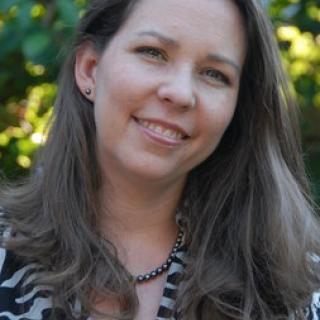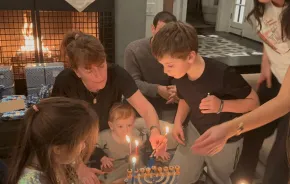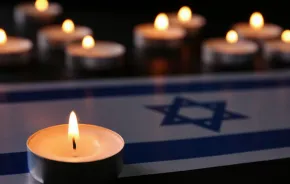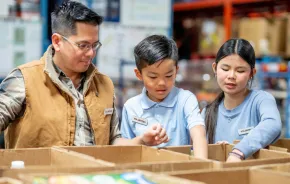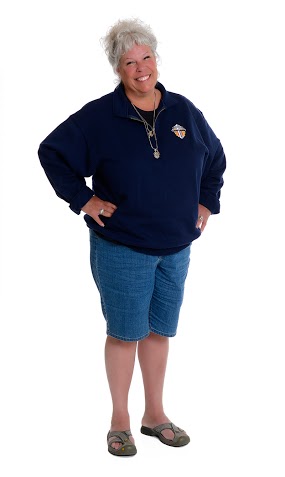 Everyone in South King County knows the little restaurant in Black Diamond called Mama’s Steak and Pasta — or as locals know it, Mama Passarelli’s. Since 2004, Mama (Ginger Passarelli) has been serving up a delicious menu of home-cooked meals to her patrons. But not everyone knows Mama’s alter ego: The Soup Lady. Her group, The Soup Ladies, is a nonprofit organization dedicated to serving police, fire and other first responders who are on the scene when crimes occur or natural disasters strike. At the recent landslide in Oso, Wash., The Soup Ladies put out more than 6,600 hot, home-cooked meals for all the first responders working at the scene of the disaster. They even go to other states if they are needed. If you see a scene on the news that includes law enforcement or first responders working to help people, you can bet The Soup Ladies are there, too, helping the helpers.
Everyone in South King County knows the little restaurant in Black Diamond called Mama’s Steak and Pasta — or as locals know it, Mama Passarelli’s. Since 2004, Mama (Ginger Passarelli) has been serving up a delicious menu of home-cooked meals to her patrons. But not everyone knows Mama’s alter ego: The Soup Lady. Her group, The Soup Ladies, is a nonprofit organization dedicated to serving police, fire and other first responders who are on the scene when crimes occur or natural disasters strike. At the recent landslide in Oso, Wash., The Soup Ladies put out more than 6,600 hot, home-cooked meals for all the first responders working at the scene of the disaster. They even go to other states if they are needed. If you see a scene on the news that includes law enforcement or first responders working to help people, you can bet The Soup Ladies are there, too, helping the helpers.
How did The Soup Ladies get started?
One of the kids at my church was a volunteer with search and rescue, and eight or nine years ago, he asked me if we could bring food out. So we did. Then one of the deputies started walking us through the process of how to get our incident command training, how to conduct ourselves on a scene. After we had a certain amount of training, we began getting requests to come out to more critical scenes. When there is an active scene, or an investigation, every first responder has a job to do. They can’t afford to send a vital person out for burgers or pizza. So that’s where what we do is so important. And we are also at all the scenes of line-of-duty deaths for police and firefighters.
What gave you the idea to make feeding first responders your calling?
All I know is that when I was down in Mississippi after Katrina, the first responders … they were kind of stuck out there, doing their work, long days. Whatever they stuffed in their pockets, granola bars, power bars, or MREs in the vehicles, that’s what they lived on. And that just felt wrong to me. I’m just a little speck on this planet, when you think about it. We’re not some big organization that can cook a bazillion meals a day. We only put out about 500 or 600 meals a day — that’s not very many meals. But they were home-cooked and they were made with love. These hot meals mean the world to these people, especially when it’s pouring down rain, or when there’s people missing. They do jobs I would never want to do, but I can cook. Everyone has a gift.
When did you become a nonprofit?
Seven or eight years ago. We all buy our own plane tickets. Once we get [to an incident] and need to rent a car or get a hotel — that is funded by the nonprofit.
I heard you have a pretty awesome mobile kitchen in a trailer.
These hot meals mean the world to these people, especially when it’s pouring down rain, or when there’s people missing. They do jobs I would never want to do, but I can cook. Everyone has a gift.
Yes, it has 12 burners and two full-size ovens. We can put out 600 meals every 90 minutes if we are serving soup. We only take the mobile kitchen to huge incidents, extended scenes. Usually we cook here at my restaurant and then deliver. We have boxes that hold the food hot for 8 –10 hours; 99.99 percent of our contributions are at small incidents, and 85 percent are just a drop-off, short term, 24–72 hours. There are exceptions: Oso was 16 days.
How many Soup Ladies do you have in the organization?
Only 40. Each and every volunteer is certified through FEMA in incident command. They have to pass a minimum of two tests, ICS 100 and ICS 700, plus pass a background check through the King County Sheriff’s department. They are then issued credentials through the state as emergency workers.
What kind of training do you have?
I personally am a chaplain for Black Diamond Police and Mountain View Fire, Washington State Patrol, and Fish and Wildlife. I have CISM [critical incident stress management] training. We do debriefs. Even if we’re just feeding the people who are out there, we need to be debriefed. Whether you are handing out cookies or digging, you are a part of the incident. You see it, smell it, taste it and hear it. I have to be able to debrief my people.
What do you mean by debriefing?
Each day when we are done, the team gets together and talks about our day. I am not a professional, I just tell people what they can expect, and give them tools and resources. I tell them they can expect to feel sadness, anger and even guilt. Any of the emotions in the five stages of grief.
Who debriefs Mama?
I’m glad you asked that. I have someone that I call and I unload — then I’m OK. I never knew how important that was until there was one incident — a car that went into the Green River with two kids in it. And that little guy in the car was the same age as my oldest granddaughter. About three days later, I was in the kitchen and I couldn’t stop crying. I called a chaplain and he said, “Oh, that’s critical incident stress.” That’s when I knew I needed to get some training in how to help my people.
Do you only serve soup?
No, we also make chicken pot pie, stroganoff, shepherd’s pie, anything high-carb and high-protein.
We listen very carefully when we are on a scene. Little things make a huge difference to people. Somebody said, “I would love some Red Vines.” So we went and picked up containers of Red Vines. We have all the support in the community, so that we can listen to what they want and get it for them, and not worry about the cost. These guys are doing a hard job. How can we make their lives just a little bit better? I remember at one particular scene I was texting back and forth with someone, and I said, “I’m at Safeway. Do you need anything?” They texted back: “Feminine hygiene!” Now I keep that in the truck at all times.
What is your long-term goal for The Soup Ladies?
I want our organization to serve with excellence. I don’t want to ever lose the heart of what we’re doing. We’re writing an operations and procedures manual right now on how to do what we do. I can see this in every community, people taking care of their own first responders. And doing it right. Why should I fly to Galveston or Oklahoma? Someday it will be bigger; we’ll teach other people to do what we’re doing.
How can people help?
Everything you need to know is on the Soup Ladies website, soupladies.org. We have meetings twice a year for people who are interested. As parents and grandparents, we have to show our children how to help others. Are we all teaching our children and grandchildren how to make this world a better place? We just help each other, it’s not rocket science.
What’s your favorite soup?
Prime rib and horseradish. It’s on my menu here at the restaurant.




